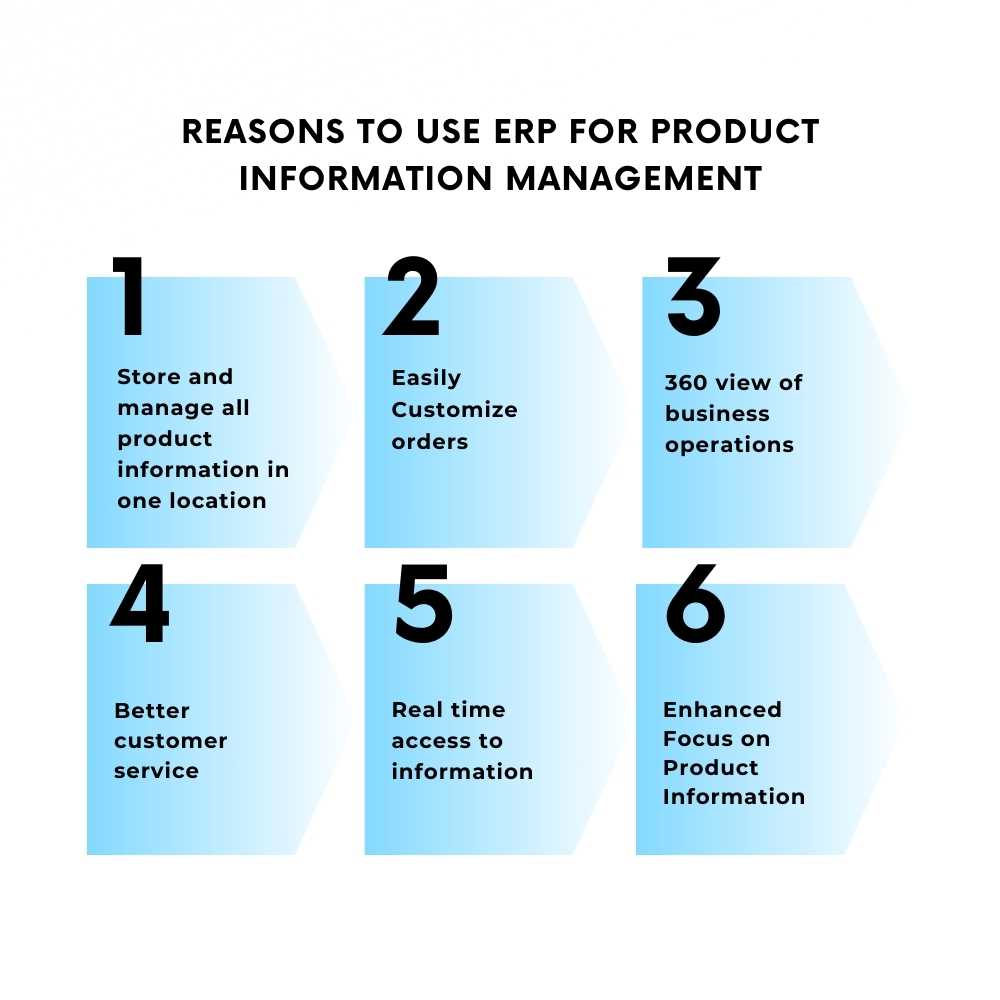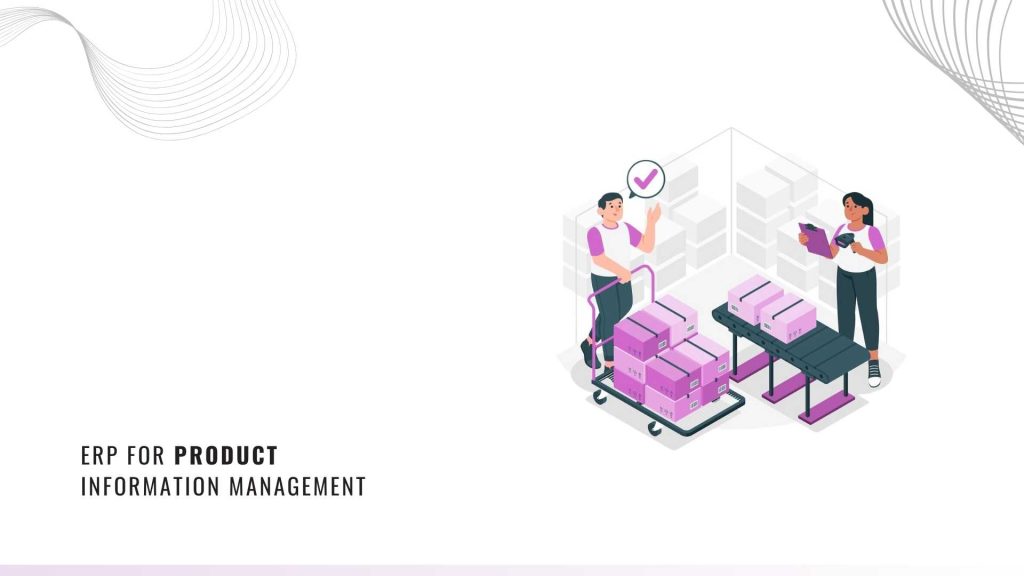Effective product information management is a cornerstone for organizational success in today’s dynamic business landscape. The need to simplify, organize, and optimize product data has become critical with an ever-expanding array of products and services. ERP systems emerge as indispensable tools in this context, revolutionizing how companies manage their product information (PIM).
Here are several compelling reasons why incorporating ERP systems for PIM is imperative for businesses striving for efficiency, accuracy, and competitiveness in the market:
Centralized Data Repository:
ERP systems provide a centralized hub for storing and managing diverse product information. This consolidation eliminates data silos, enabling seamless access to accurate and up-to-date information across various departments. Whether specifications, pricing, inventory levels, or supplier details, having a unified database ensures consistency and eliminates discrepancies.
Streamlined Processes:
Manual data entry and disparate systems often lead to inefficiencies and errors. ERP systems automate workflows, reducing manual intervention and the likelihood of human error. By streamlining processes related to product information, these systems optimize operations, enhance productivity, and minimize the risk of inconsistencies in data management.
Improved Data Accuracy and Integrity:
Data accuracy is critical for decision-making. ERP systems implement robust data validation mechanisms, ensuring the accuracy and integrity of product information. It, in turn, fosters confidence among stakeholders, supporting informed decision-making at every level of the organization.
Enhanced Collaboration and Communication:
ERP systems facilitate seamless collaboration among departments involved in product lifecycle management. These systems promote real-time information sharing, from design and procurement to marketing and sales, fostering better team communication and coordination. This synchronized approach reduces lead times and enhances agility in responding to market demands.

Scalability and Flexibility:
As businesses evolve, their product portfolios and information requirements grow exponentially. ERP systems offer scalability, adapting to changing business needs by accommodating increased data volumes and supporting new functionalities. This scalability ensures that the PIM process remains robust and efficient even as the organization expands.
Compliance and Regulatory Adherence:
Industries are subject to stringent regulations governing product information and data security. ERP systems have features that aid compliance with industry standards and regulations. These systems offer tools for data governance, ensuring that organizations adhere to compliance requirements, thereby mitigating risks associated with non-compliance.
Data Analytics and Insights:
Leveraging ERP systems for PIM unlocks the potential for comprehensive data analysis. By harnessing the power of embedded analytics, businesses can derive valuable insights into customer behavior, market trends, and product performance. These insights empower informed decision-making, facilitating strategies for product improvement and market positioning.
Conclusion
In Product Information Management (PIM), Acumatica Cloud ERP emerges as a transformative solution, revolutionizing how businesses handle and leverage their product data.
Acumatica’s cloud-based ERP system offers a comprehensive suite of tools seamlessly integrating with PIM strategies, empowering organizations to centralize data, streamline processes, and foster collaboration across departments.
With its scalable architecture, robust data validation features, real-time accessibility, and embedded analytics, Acumatica Cloud ERP enhances the accuracy and integrity of product information and facilitates agile decision-making, compliance adherence, and strategic insights.
Choosing Acumatica as the ERP solution for PIM is a decisive step toward optimizing operational efficiency and driving sustained growth in today’s competitive business landscape.

Vijay comes with a vast experience in ERP and enterprise solutions space with about 20 years of experience in various packaged application like Acumatica, SAP, Orion, Salesforce.com, SugarCRM and, SalesLogix.

